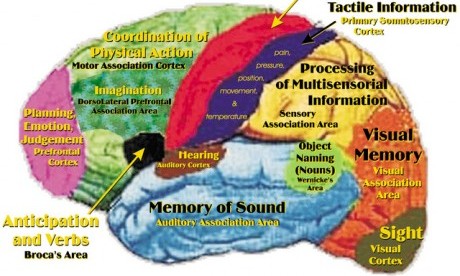A British ethics group has launched a debate on the ethical dilemmas posed by new technologies that tap into the brain and could bring super-human strength, highly enhanced concentration or thought-controlled weaponry.
With the prospect of future conflicts between armies controlling weapons with their minds, the Nuffield Council on Bioethics launched a consultation on Thursday to consider the risks of blurring the lines between humans and machines.
“Intervening in the brain has always raised both hopes and fears in equal measure. Hopes of curing terrible diseases, and fears about the consequences of trying to enhance human capability beyond what is normally possible,” said Thomas Baldwin, a professor of philosophy at Britain’s York University who is leading the study.
“These challenge us to think carefully about fundamental questions to do with the brain: What makes us human? What makes us an individual? And how and why do we think and behave in the way we do?.”
The Council, an independent body which looks at ethical issues raised by new developments in biology and medicine, wants to focus on three main areas of neurotechnologies that change the brain: brain-computer interfaces (BCIs), neurostimulation techniques such as deep brain stimulation (DBS) or transcranial magnetic stimulation (TMS), and neural stem cell therapy.
These technologies are already at various stages of development for use in the treatment of medical conditions including Parkinson’s disease, depression and stroke, and experts think they could bring significant benefits, especially for patients with severe brain disease or damage.
Growing fast
But they also have huge potential outside the health context. In military applications, BCIs are being used to develop weapons or vehicles controlled remotely by brain signals, and there is big commercial scope in the gaming industry with the development of computer games controlled by people’s thoughts.
Speaking at a briefing to launch the consultation, Baldwin said the estimated total global market for all neurotechnologies — including pharmaceuticals for the treatment of brain disorders – is around $150 billion. Read more
Sources
